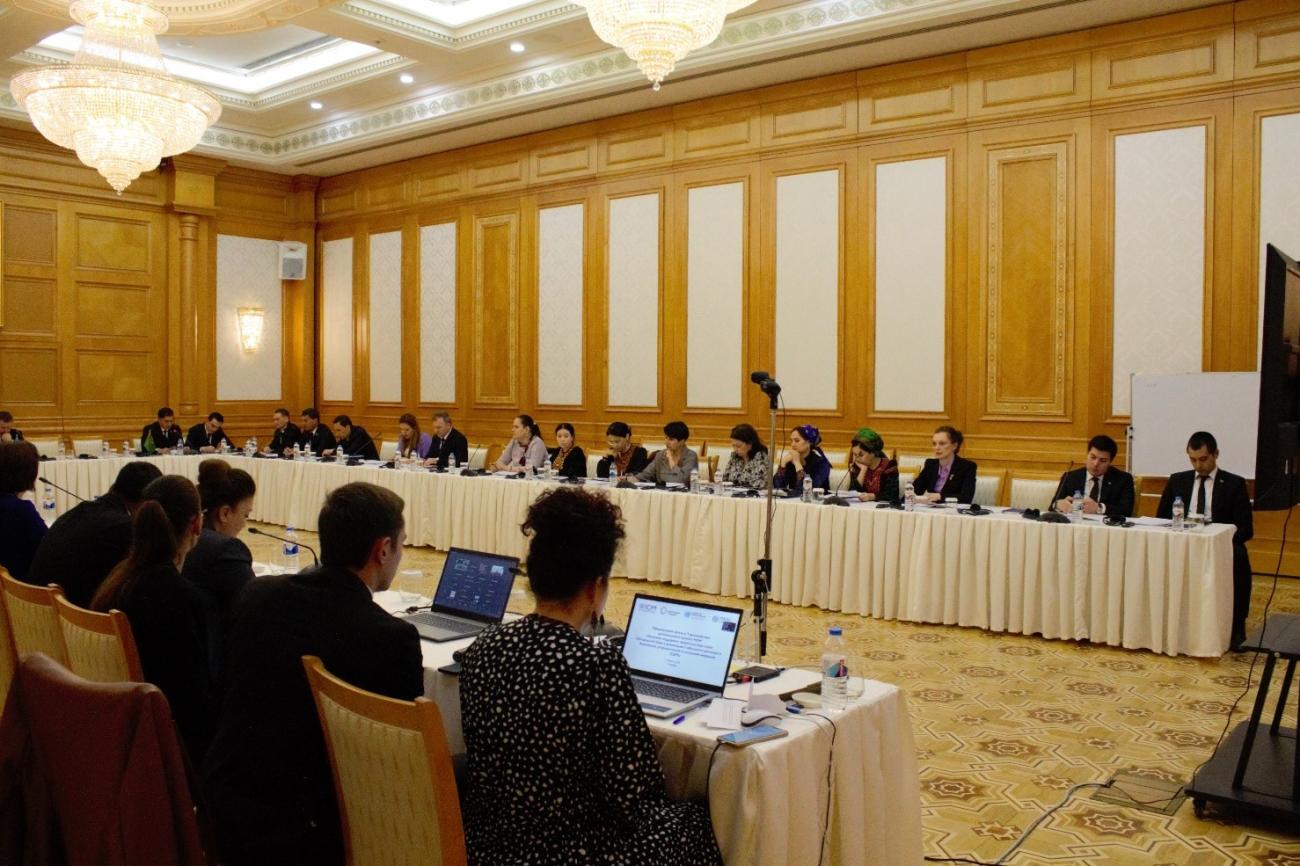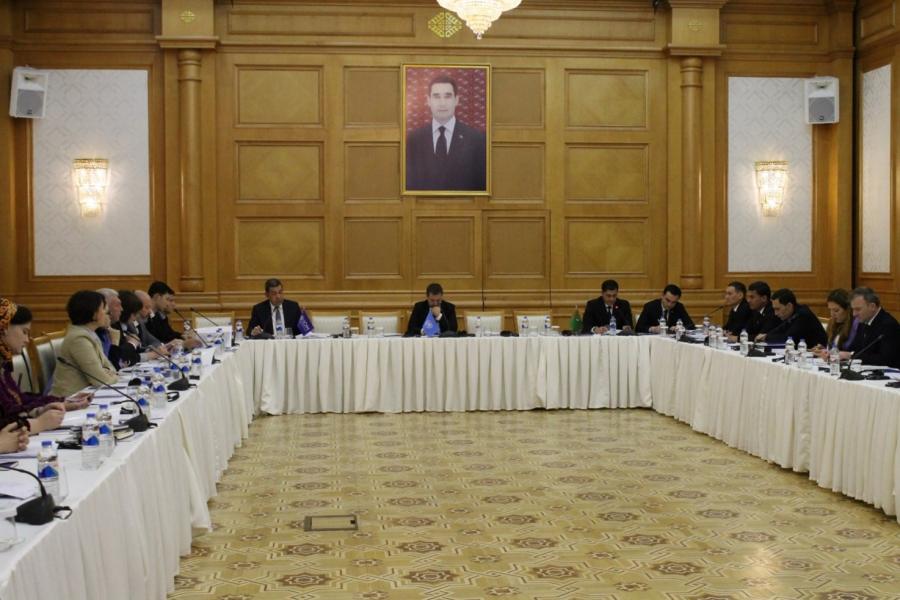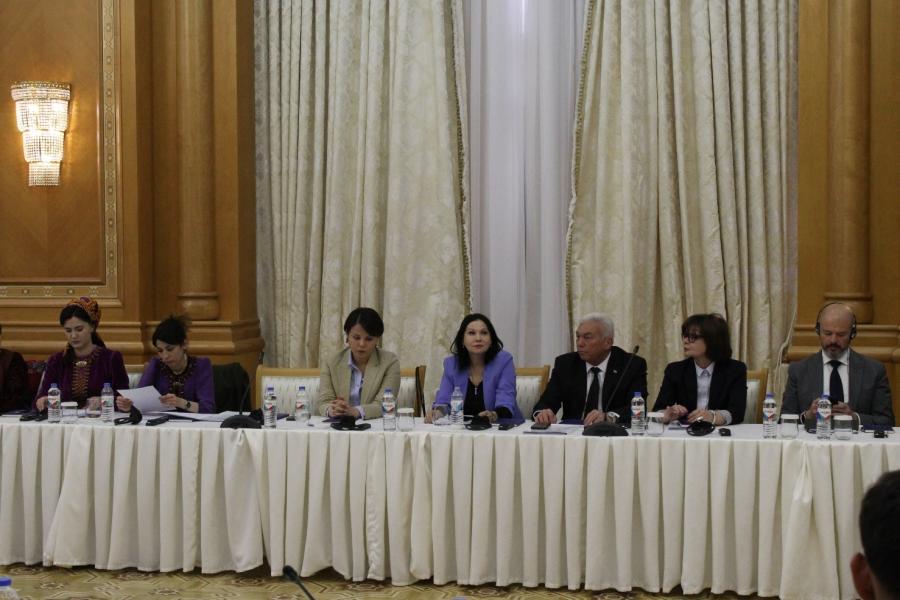IOM in Turkmenistan launches regional project "Assistance to the Governments of Central Asian States in the Implementation of the Global Compact for Safe, Orderly and Regular Migration (GCM)"

IOM in Turkmenistan has launched a new regional project.
The International Organization for Migration (IOM) in Turkmenistan has launched a regional project "Assistance to the Governments of Central Asian States in the implementation of the Global Compact for Safe, Orderly and Regular Migration (GCM)". The event marking the official launch of the regional project in Turkmenistan brought together in the physical format members of the Interdepartmental Working Group on GCM implementation, members of the Mejlis and representatives of national public associations representing project partners, the UN Resident Coordinator in Turkmenistan and representatives of UN agencies in Turkmenistan representing the UN Network on Migration in the country, as well as IOM Subregional Coordinator for Central Asia, representatives of the UN Migration Network Secretariat, IOM Regional Office in Geneva, representatives of International Organization “United Cities and Local Authorities” in the online format.

This regional project aims to strengthen the capacity of the governments of Kazakhstan, Kyrgyzstan, Tajikistan, Turkmenistan, and Uzbekistan, as well as relevant stakeholders in the region to advance the implementation, follow-up and review of the GCM objectives in line with its guiding principles and ahead of the upcoming GCM Regional Migration Review Forum scheduled for 2024. In Turkmenistan, the project aims to strengthen the capacity of members of the Interdepartmental Working Group on GCM Implementation and other stakeholders in implementing specific initiatives, such as the development of a National Action Plan on the priority areas identified in the Progress Declaration of the International Migration Review Forum, as well as supporting the preparation and presentation by Turkmenistan of the Voluntary National Review (VNR) on the implementation of the GCM at the Regional Forum in 2024.
“The upcoming Regional Migration Review Forum in 2024 will provide an excellent opportunity for Turkmenistan to show all its achievements in the field of migration in accordance with SDG target 10.7 to promote orderly, safe, regular and responsible migration and mobility of people, including through the implementation of a planned and well managed migration policy. I want to assure that the UN Network on Migration in Turkmenistan will make every effort to support national partners and other stakeholders in the preparation of this VNR within the framework of this project,” UN Resident Coordinator in Turkmenistan Dmitry Shlapachenko noted.
“There is already a necessary framework and some experience for the project implementation in Turkmenistan. For example, following the spirit and principles of the GCM, Turkmenistan has already submitted a National Voluntary Review on the implementation of GCM, first at the Regional Migration Review Forum in 2020, and then at the first ever International Migration Review Forum in 2022, which resulted in the adoption of the Progress Declaration. In this document, the countries reaffirmed their commitment to the guiding principles and goals of the GCM and agreed on the further actions to accelerate the implementation of the GCM,” IOM Sub-Regional Coordinator for Central Asia, Head of Mission in Kazakhstan, Kyrgyzstan, Turkmenistan and Uzbekistan Zeynal Hajiyev stressed.

As part of the event, national project partners and relevant stakeholders got acquainted with the forthcoming joint work on the implementation of the GCM and the recommended actions of the Progress Declaration of the International Migration Review Forum to accelerate the implementation of the GCM, including the preparation of a Voluntary National Review for submission at the Regional Migration Review Forum in 2024. The participants of the event also got acquainted with the experience of the Republic of Kazakhstan in the implementation of the GCM and discussed interdependence of migration issues and the 2030 Agenda.

